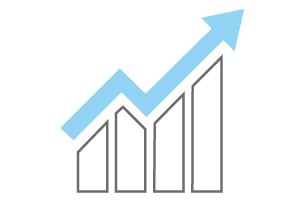In our team meetings, we often discuss the shifting sands of the market. Not only is it an interesting topic, but it poses a challenge for asset allocators. We are in the midst of a multi-year outperformance cycle for large-cap growth. The companies that have driven this outperformance have all become household names: Alphabet, Amazon, Apple, Meta, Microsoft, Netflix, Nvidia, and Tesla. The top 10 names in the S&P 500 account for roughly 32 percent of the index compared to the average since 1990 of 20 percent. During the dot-com boom, the top 10 weightings peaked at 25 percent.














